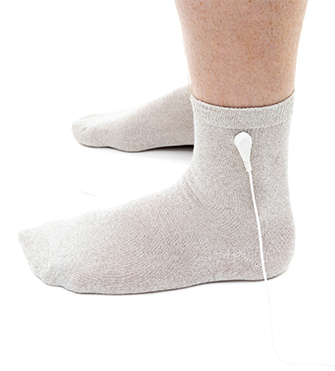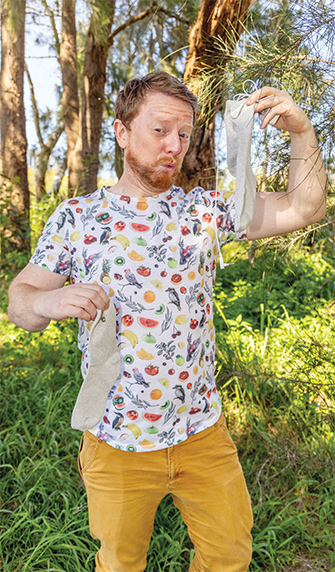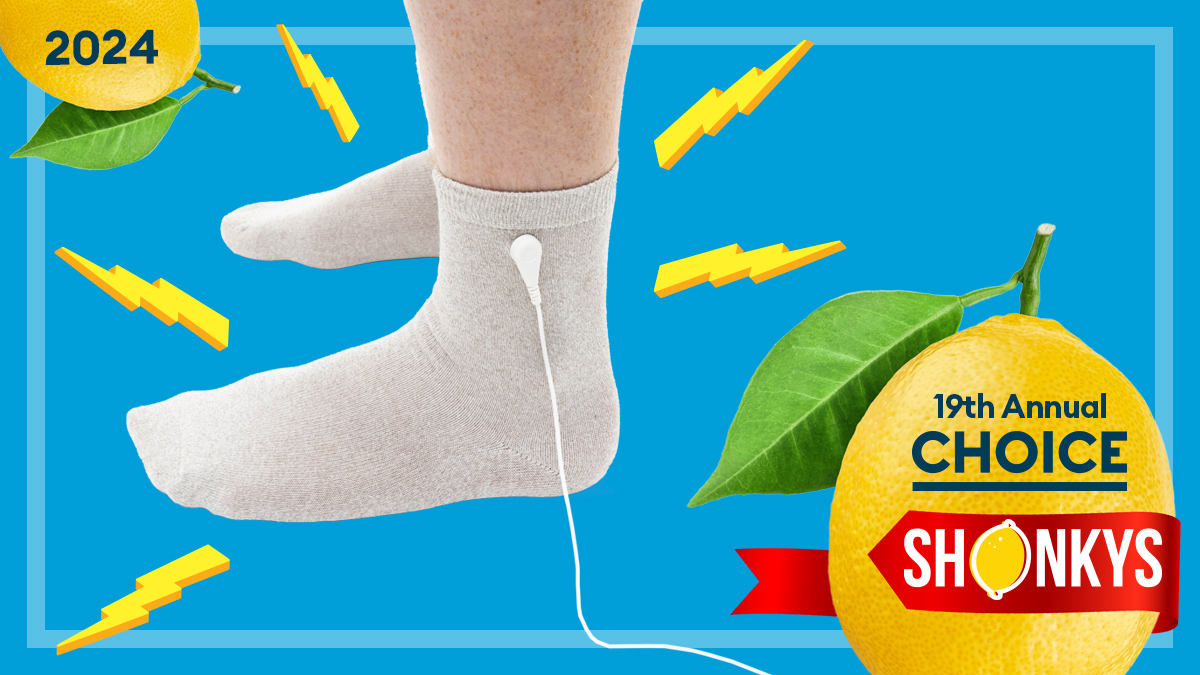Did you know that humans are apparently like appliances? That we build up electrons that supposedly cause all sorts of health problems, unless we regularly release them back into the earth? That’s the claim of practitioners of grounding, who also believe that all you need to do to restore your body’s balance is go outside and touch grass.
But don’t worry, GroundingWell has a supposed solution for folks who can’t easily access dirt. For just $40, you can get a pair of socks that plug into the grounding socket of an electrical outlet, to replace those pesky electrons with fresh ones via Earth’s natural energy.
We reckon these socks are pretty damn shonky.
For just $40, you can get a pair of socks that plug into the grounding socket of an electrical outlet to replace those pesky electrons with fresh ones via Earth’s natural energy
“While the socks do ground you as promised, they don’t deliver any of the claimed health benefits such as faster healing, pain alleviation, anti-ageing effects and mood elevation – at least in our experience,” says CHOICE editorial director Mark Serrels.
“They’re also poorly made. The connection pin, which is hard to detach from the grounding cable, even tore off the socks after just two uses.”
And this could be a problem for people with dexterity, pain and inflammation issues or limited strength. In other words, the kind of customers that GroundingWell wants to target.

Questionable research
The issues go well beyond these shoddy socks, mind you. Though we’ve found research on grounding, also known as earthing, going back more than 30 years, most of the studies are pretty questionable.
Proof is often based on subjective outcomes such as “feeling better”, “reduced pain” and “less stress”, and grounding experts typically fail to consider any other factors that may lead to these results. Conclusions tend to revolve around “grounded subjects showed an improvement, ungrounded ones did not, therefore, the improvement must be a result of grounding”.
And finally, the evidence largely comes from pilot studies that almost always use small sample sizes. Scroll to the end of a grounding research paper and it will usually wrap with something like: “Grounding appears to be causing these effects but we don’t know why. Further research is required.”
Naturally, retailers of grounding products tend not to mention these weaknesses of the research.

How grounding works
Grounding is an oversimplification of how energy works, according to Carl Mihailovich, our in-house expert with more than 30 years of experience in electronic test labs and safety standards committees.
“You do need electrical signals to function, but that’s internal to your body,” he says. “The research isn’t clear about how a current flowing between your body and the earth provides any real health benefit.”
Plus, grounding doesn’t actually replace electrons. It only discharges you in an instant then stops any flow of energy until you’re ‘disconnected’ – whether that’s from a pair of grounding socks or from the ground under your feet.
“You’re simply discharged and remain that way until you disconnect then charge back up again, for want of better words,” explains Mihailovich. “It’s like an anti-static wrist strap worn while repairing electronics and so on.”
Mihailovich also found that the adaptors that come with GroundingWell’s socks are not approved for use in Australia and therefore can’t be considered safe. “An obvious problem is the omission of the insulation required on the live pins where they exit the adaptor body,” he says. “This has been a requirement in Australia since 2005.”
That’s not to say that these socks are blatantly faulty, but they lack the components to ensure that they’re absolutely safe. You just have to hope that GroundingWell has made sure the live pins are correctly isolated.
Science, or just a good story?
Is there enough evidence to conclusively say that grounding, and therefore the GroundingWell Socks, don’t work to heal pain, improve sleep or slow the ageing process? No.
Is there enough evidence to prove that the socks do work and are worth the $40 price tag? Also no.
Not only did they fail to deliver promised results, they’re poorly made and difficult to use
Is there enough evidence to say these socks are shonky? We say yes.
Not only did they fail to deliver promised results, they’re poorly made and difficult to use. All of the maths and machines in the world can’t change the fact that so much of the “proven evidence” is anecdotal, and you can’t sell science on stories alone.
More 2024 Shonky Award winners

